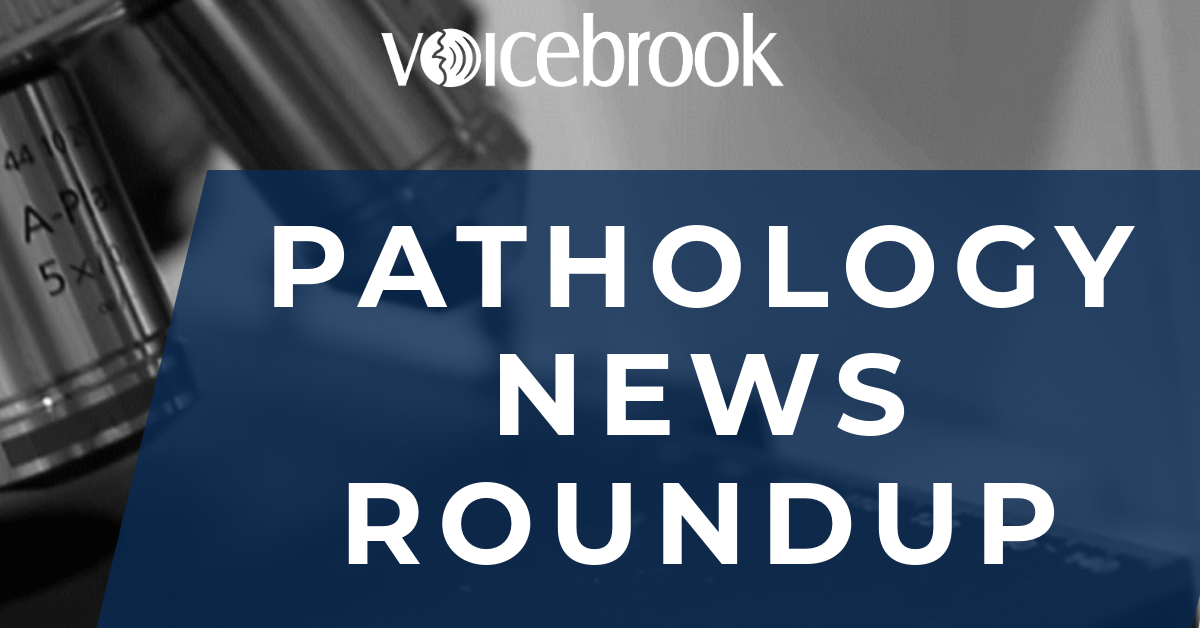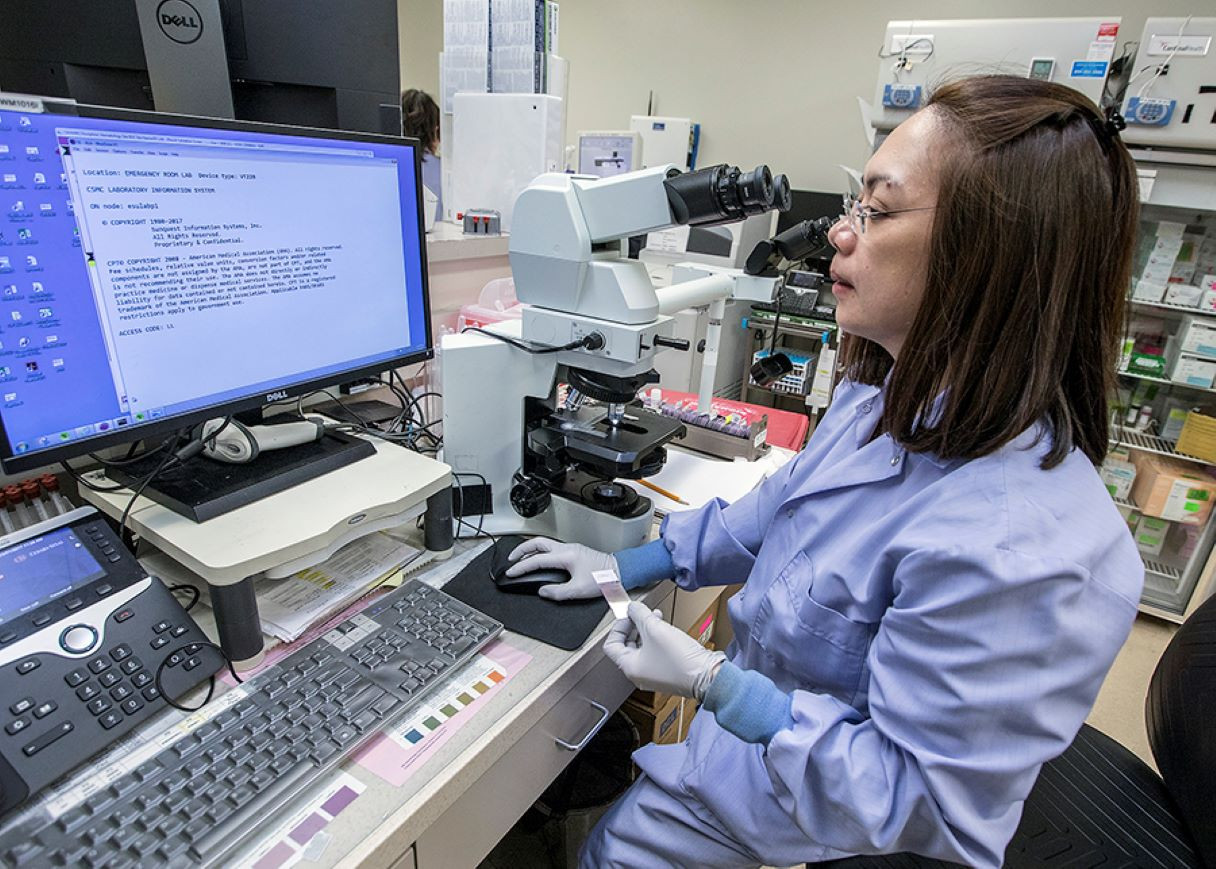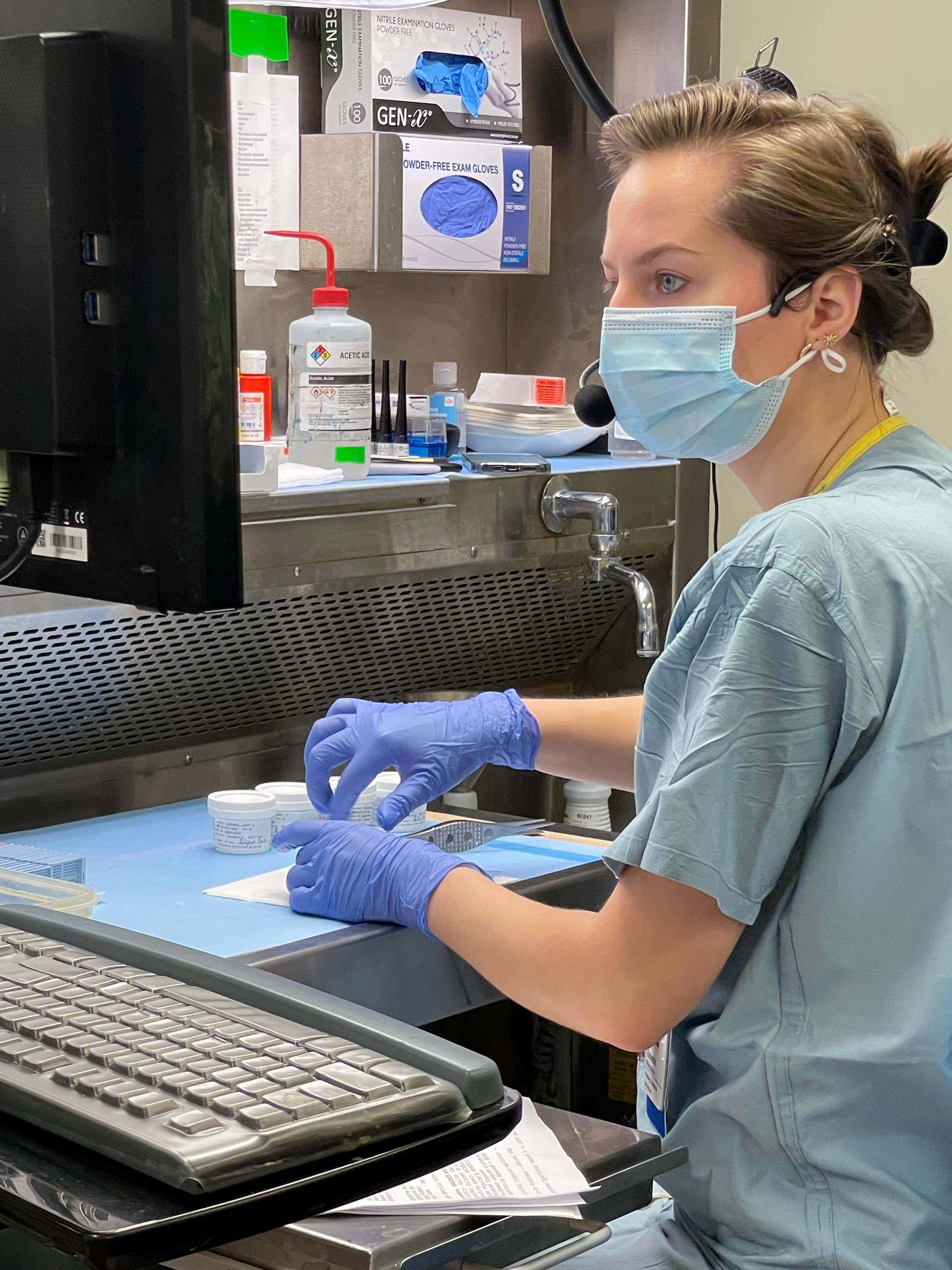Pathology News Roundup: January 2026
Bias in Pathology AI. A new study from Harvard Medical School, published in Cell Reports Medicine, found that artificial intelligence systems used to...

New CAP CEO. The College of American Pathologists (CAP) has named its new CEO. Michael Fraser, PhD, MS, CAE, FCPP, is joining the CAP as its new Chief Executive Officer. Fraser brings more than 25 years of medical association management experience, as well as a track record of solid leadership in the health care sector.

Michael Fraser joins the CAP as its new CEO. Photo courtesy of the CAP.
Previously serving as CEO at the Association of State and Territorial Health Officials (ASTHO), Fraser played a pivotal role in shaping public health policy across 59 states and territories.
"I bring a ‘startup energy’ that lets me see things from a fresh perspective—the opportunities as well as the challenges,” said Fraser. “That’s what fuels my passion, and I can’t wait to learn more about the specialty and contribute to the CAP’s ongoing success.”
Fraser is enthusiastic about building strong relationships across the CAP.
“The CAP has a remarkable history, a stellar reputation, and a proven track record of superior quality and advocacy,” Fraser said. “I look forward to listening to and engaging with the CAP’s members and staff, understanding their needs, and finding ways to harness the CAP’s strengths and expertise tackling the emerging issues and trends in health care, including digital pathology, artificial intelligence, precision medicine, and health equity.”
Fraser says continuing to bolster the CAP’s worldwide reach in providing accreditation and proficiency testing programs is a key priority moving forward.
Fraser holds a Ph.D. and master's degree in sociology from the University of Massachusetts at Amherst, a Master of Science in management from Michigan State University, and a bachelor's degree in sociology from Oberlin College. He has authored numerous peer-reviewed scientific publications and nonfiction books on strategic leadership and public health.

New AI Tool Mines Cancer Patients’ Pathology Data. Cedars-Sinai investigators have used artificial intelligence (AI) to help computers access some of the most important and difficult-to-mine information in cancer patients’ medical records: pathology reports. Their method, described in the peer-reviewed data science journal Patterns, could help physician-scientists who obtain patient consent to extract information from these patients’ pathology reports for research and clinical trial recruitment.
“Cancer is a complex disease, and rich information is contained in the notes that a pathologist makes when they review a patient’s cancer underneath the microscope,” said Nicholas Tatonetti, PhD, vice chair of Operations in the Department of Computational Biomedicine at Cedars-Sinai, associate director of Computational Oncology at Cedars-Sinai Cancer and senior author of the study. “But because these notes are in the form of scanned PDFs, the text they contain has been inaccessible to computers—until now.”

Notes made by Cedars-Sinai pathologists are an important part of understanding a patient’s cancer. Photo by Cedars-Sinai.
To create a machine-readable pathology dataset, Tatonetti and his team worked with The Cancer Genome Atlas, a publicly available collection of information from thousands of U.S. cancer patients who have given permission for investigators to examine their personal health records.
“The pathology reports in the atlas are scanned in at all angles and in different formats from each of the institutions that provided them,” Tatonetti said. “They’re messy and their scan quality is relatively poor—not unlike pathology forms you would find in patient records.”
Investigators used AI to clean up the scans so that optical character recognition software could turn them into machine-readable notes. When investigators compared these notes against the original reports, they found this method was highly accurate.
“By making the reports machine readable, we can train algorithms to extract information from them in response to investigators’ questions,” Tatonetti said. “This will help investigators identify and validate new disease markers, conduct research, and recruit patients for clinical trials.”
The resulting collection of text from the reports, now publicly available, includes data on almost 10,000 cancer patients. The format is commonly used in machine learning to allow computational biologists and computer scientists to use the data, Tatonetti said. The method could also be used to extract pathology report data from other datasets.
“The true story of a patient’s condition, such as detailed information about their cancer and the effects of various therapies, is found in clinicians’ notes,” said Cedars-Sinai Cancer Director Dan Theodorescu, MD, PhD, the PHASE ONE Foundation Distinguished Chair and Director at the Samuel Oschin Comprehensive Cancer Institute. “Tools that help us mine this information further our efforts to conduct translational studies that bring the promise of precision medicine to each of our patients.”
Tatonetti and his team are now focused on training models to extract specific information—such as cancer staging—from the data.
“Our model can extract that information when it is present in the notes, but it can also accurately infer the stage when it is not explicitly stated,” Tatonetti said. “For instance, the pathologist might make a note about a secondary lesion or about or evaluating a sample of a breast cancer from the liver. These notes don’t include the word 'metastatic', but they do imply it.”

CMS Extends 2023 MIPS Data Submission Deadline. The Centers for Medicare and Medicaid Services (CMS) has extended the 2023 Merit-based Incentive Payment System (MIPS) data submission deadline until April 15. The deadline was originally scheduled to close on April 1, but due to ongoing concerns with the impact the Change Healthcare cybersecurity attack is having on physician practices, the CMS has extended the 2023 MIPS data submission deadline. Data can now be submitted and updated until 8 PM ET on April 15, 2024.
In addition, on March 13, CMS published FAQs related to the Change Healthcare/Optum payment disruption accelerated and advance payments. These go into detail about what services qualify for accelerated and advance payments, application criteria, terms of repayment, financial concerns, and other topics.
Learn more about MIPS and how pathologists can get paid equitably for their services by visiting the CAP's Pathologists' Quality Registry.


Founded in 2002, Voicebrook is the leading provider of reporting solutions for pathology, with more than 550 client sites across the US, Canada, and Australia.
Leverage the power of customized templates and the efficiency of speech recognition with VoiceOver PRO, a revolutionary reporting solution that's tailored to the unique needs of anatomic pathology.
SynoptIQ is a full-featured eCP solution solely focused on CAP cancer reporting, at a budget-friendly price point. SynoptIQ is where specificity and efficiency meet.

Bias in Pathology AI. A new study from Harvard Medical School, published in Cell Reports Medicine, found that artificial intelligence systems used to...

CAP Announces Immersive AI Platform. A new virtual artificial intelligence (AI) platform for pathologists will debut at CAP25, September 13-16 in...

Article Touts Generative AI in Pathology. Generative artificial intelligence (GAI) is emerging as a powerful tool across medicine, with the potential...